Filter by
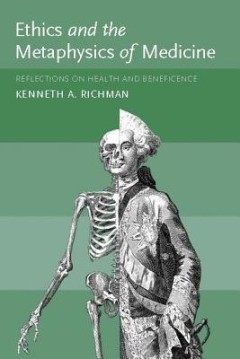
Ethics and the Metaphysics of Medicine: Reflections on Health and Beneficence
Explores the philosophical and practical ethical implications of a definition of health as a state that allows us to reach our goals.Definitions of health and disease are of more than theoretical interest. Understanding what it means to be healthy has implications for choices in medical treatment, for ethically sound informed consent, and for accurate assessment of policies or programs. This de…
- Edition
- -
- ISBN/ISSN
- 9780262282383
- Collation
- 1 online resource (x, 222 pages).
- Series Title
- -
- Call Number
- -
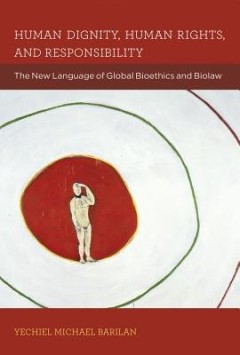
Human Dignity, Human Rights, and Responsibility :the New Language of Global B…
Title from PDF title page (viewed on Oct. 11, 2012)."'Human dignity' has been enshrined in international agreements and national constitutions as a fundamental human right. The World Medical Association calls on physicians to respect human dignity and to discharge their duties with dignity. And yet human dignity is a term--like love, hope, and justice--that is intuitively grasped but never clea…
- Edition
- -
- ISBN/ISSN
- 9780262305815
- Collation
- 1 online resource (xiv, 349 pages) :illustrations.
- Series Title
- -
- Call Number
- -
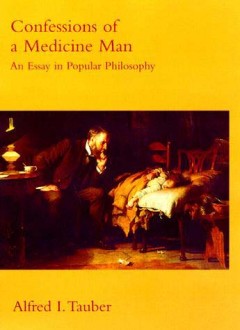
Confessions of a Medicine Man: An Essay in Popular Philosophy
A physician/philosopher uses anecdotes, historical narrative, and philosophical concepts to draw a moral portrait of the doctor-patient relationship."My mission is to analyze medicines ethical structure. I do so as both a physician and a philosopher. Of my two voices, it is the latter that is informed by the former ... As a physician I have sought professional solutions to the frustrations of f…
- Edition
- -
- ISBN/ISSN
- 9780262284691
- Collation
- 1 online resource
- Series Title
- -
- Call Number
- -
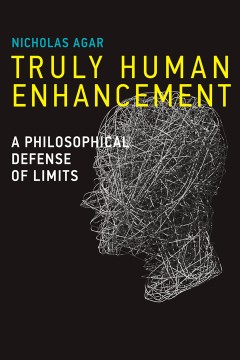
Truly human enhancement : a philosophical defense of limits
The transformative potential of genetic and cybernetic technologies to enhance human capabilities is most often either rejected on moral and prudential grounds or hailed as the future salvation of humanity. In this book, Nicholas Agar offers a more nuanced view, making a case for moderate human enhancement -- improvements to attributes and abilities that do not significantly exceed what is curr…
- Edition
- -
- ISBN/ISSN
- 9780262318976
- Collation
- 1 online resource (233 pages) :illustrations.
- Series Title
- -
- Call Number
- -
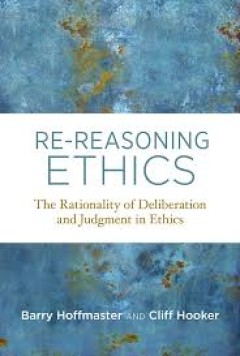
Re-reasoning ethics :the rationality of deliberation and judgment in ethics
How developing a more expansive, non-formal conception of reason produces richer ethical understandings of human situations, explored and illustrated with many real examples.OCLC-licensed vendor bibliographic record.
- Edition
- -
- ISBN/ISSN
- 9780262345637
- Collation
- 1 online resource (xvi, 296 pages).
- Series Title
- -
- Call Number
- -
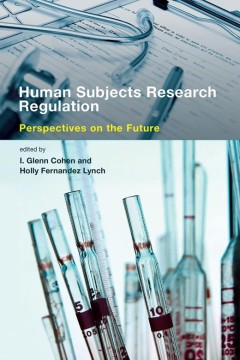
Human subjects research regulation : perspectives on the future
The current framework for the regulation of human subjects research emerged largely in reaction to the horrors of Nazi human experimentation and the Tuskegee syphilis study. This framework, combining elements of paternalism with efforts to preserve individual autonomy, has remained fundamentally unchanged for decades. Yet, as this book documents, it has significant flaws. Invigorated by the U.S…
- Edition
- -
- ISBN/ISSN
- 9780262320825
- Collation
- 1 online resource (ix, 373 pages).
- Series Title
- -
- Call Number
- -
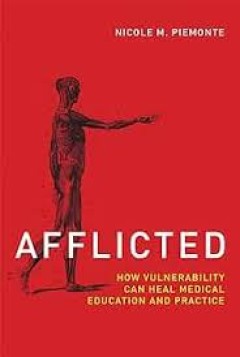
Afflicted: How Vulnerability Can Heal Medical Education and Practice
While many commentators have pointed to the lack of compassion and empathy in medicine, their critiques, for the most part, have not considered seriously the deeper philosophical, psychological, and ontological reasons why clinicians and medical students might choose to conceive of medicine as an endeavor concerned solely with the biological workings of the body. Thus, this book examines why it…
- Edition
- -
- ISBN/ISSN
- 9780262344968
- Collation
- 1 online resource.
- Series Title
- -
- Call Number
- -

Progress in bioethics :science, policy, and politics
OCLC-licensed vendor bibliographic record.
- Edition
- -
- ISBN/ISSN
- 9780262322560
- Collation
- 1 online resource (xx, 284 pages) :illustrations.
- Series Title
- -
- Call Number
- -

Self-trust and reproductive autonomy
A study of the importance of self-trust for women's autonomy in reproductive health. The power of new medical technologies, the cultural authority of physicians, and the gendered power dynamics of many patient-physician relationships can all inhibit women's reproductive freedom. Often these factors interfere with women's ability to trust themselves to choose and act in ways that are consistent …
- Edition
- -
- ISBN/ISSN
- 0585442711
- Collation
- 1 online resource (xiii, 199 pages).
- Series Title
- -
- Call Number
- -
 Computer Science, Information & General Works
Computer Science, Information & General Works  Philosophy & Psychology
Philosophy & Psychology  Religion
Religion  Social Sciences
Social Sciences  Language
Language  Pure Science
Pure Science  Applied Sciences
Applied Sciences  Art & Recreation
Art & Recreation  Literature
Literature  History & Geography
History & Geography